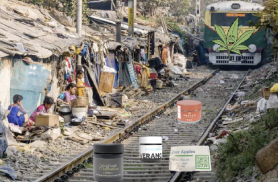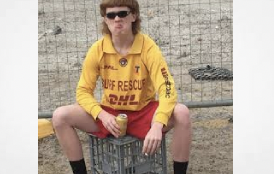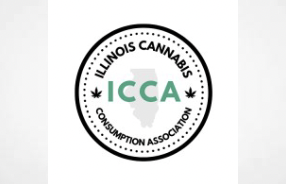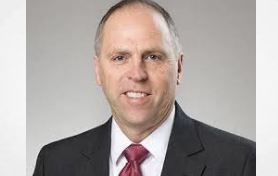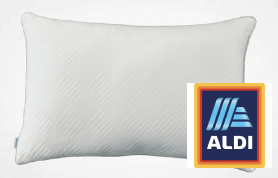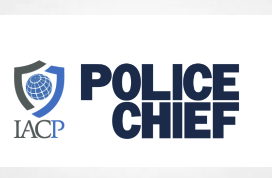
Peter Homberg, Partner and Head of the German Life Sciences Practice and the European Cannabis Group at Dentons
In our last interview at the end of 2019, we discussed the new cannabis cultivating countries for Germany; went into detail about the Good Manufacturing Practice (GMP) and Mutual Recognition Agreements (MRAs) regarding medical cannabis in the EU; learned about the challenges cannabis distributors face in Germany; and chatted about the future of the medical cannabis industry in Germany and the EU.
In the interview below, Peter and I discussed new developments regarding medical cannabis in Germany, what the country is doing to meet the rising demand for medical cannabis, what steps need to be taken to import cannabis into Germany, and whether Brexit will affect the European cannabis industry.
Peter, what are the latest developments regarding medical cannabis in Germany?
Since last we spoke, the medical cannabis market has grown significantly and we have seen some very interesting developments. In Germany, the quantity of imported cannabis products has increased dramatically. In 2018, Germany imported about three metric tonnes of cannabis flowers for medicinal purposes. In 2019, this doubled to 6.7 tonnes.
Moreover, the International Narcotics Control Board (INCB), which is the independent expert body that was established by the member states of the 1961 UN Single Convention on Narcotic Drugs, has estimated that the maximum demand for medical cannabis in Germany in 2020 may reach approximately 16 tonnes. This, in comparison to 6.7 tonnes in 2019, is a significant increase, which we are expecting due to rising patient numbers in 2020.
What is Germany doing to meet the increasing patient demand for medicinal cannabis?

The German Federal Institute for Drugs and Medical Devices, the BfArM, only allows countries that are compliant with the 1961 UN Single Convention to import cannabis into Germany. If a company wants to import cannabis products for medicinal purposes into Germany, they have to apply to the BfArM and to the lower pharmaceutical authorities. The BfArM then checks whether the country from which the import will be done is compliant with the 1961 UN Single Convention.
Until recently, Canada, the Netherlands, and Austria were the only countries exporting cannabis products under the 1961 UN Single Convention to Germany. But recently, following additional applications from German importers, the BfArM added a number of new countries to the list: Switzerland, Israel, Columbia, Portugal, Spain, and Uruguay.
Interestingly, Uruguay, like Canada, has also legalized cannabis for recreational purposes. However, both countries have clear regulatory guidelines, which differentiate between the use of cannabis for medical purposes and for recreational use.
Once countries are deemed compliant with the 1961 UN Single Convention, what other steps need to be taken to import cannabis into Germany?

Before an import into Germany can occur, further steps need to be initiated. First, a country needs to have the respective legislation in place to make it compliant with the 1961 UN Single Convention. Then, the authorities check if the exporting company follows the EU Good Manufacturing Practice (GMP) requirements. On top of that, it’s not only a question of the exporter being EU GMP compliant, but there is also the question of whether the exporter has the respective export licenses of his jurisdiction.
For example, let’s take an exporting company in Spain and an importer in Germany. The importer has to apply for a license to import products from the Spanish cultivator. Then, the respective authority in Germany will check whether Spain is compliant with the 1961 UN Single Convention; whether the exporting company is EU GMP certified; and whether the exporting company has all respective licenses under its local regulatory regimen. If all criteria are met, the export from Spain to Germany can occur.
What are the new regulations for products containing THC in Germany?

Let’s start with the question of radiation. It has been a question since the first cannabis flowers were imported into Germany. In order to improve the microbiology, cannabis flowers are frequently irradiated. This means that radiation is used to kill-off microbial contaminants.
Last year, the BfArM decided that the respective legal provisions for the irradiation of ready-made pharmaceuticals would also apply to products containing cannabis, in particular, cannabis flowers. These have to hold a respective license under the act for the treatment of pharmaceuticals with radioactive or ionizing radiation (AMRadV), which is the law for the irradiation of pharmaceuticals.
Following this decision, the Canadian cannabis producer Aurora was forced to take its cannabis products off the German market because they had been irradiated and the company didn’t hold the license. Meanwhile, Aurora has actually received the necessary irradiation licenses and is now back in business.
Now that the UK has left the EU, do you think there will be any changes regarding medical cannabis importation and exportation?

The point is that the EU member states always had a heterogeneous regulatory environment for medical cannabis. This is no different now and will probably not change just because of Brexit. Interestingly, the harmonization process the EU Commission announced last year, doesn’t seem to be proceeding very quickly.
On the other hand, we’ve seen some reactions from the UK authorities regarding CBD products. So far the UK was one of those countries where CBD products were sold widely and broadly, and this has now been reviewed. The respective authorities have decided that any food supplement containing CBD has to be given a novel food status. Companies have to apply for authorization of their CBD extracts and isolates by the end of March 2021. Otherwise, the product has to be taken off the market.
Similar to this, the European Commission clarified last year that some food supplements containing CBD fall under the Novel Food Directive. A ‘novel food’ is defined by the European Commission as food that humans in the EU did not consume before May 1997, which is when the first novel food regulation came into force.
This is interesting because there are a number of companies on the market producing products containing CBD, which are either cosmetics, food supplements, or medicines. For all three product types, you have to fulfill different requirements, respectively. However, some companies currently selling CBD products are arguing that their products don’t fall into either of these categories. Evidently, there is some confusion on the market regarding what type of product falls into what category. So this needs some further investigation by the authorities.
Do you want to learn more about recent developments regarding medical cannabis in Europe and Germany? Get in touch with Peter and his expert team at Dentons!
Or check out our past interviews with Peter and follow the development of medical cannabis regulations in Germany and the EU since 2017:
- Here’s the Latest News on Medical Cannabis from Europe and Germany
- How are New Regulations for Medical Cannabis Impacting Germany, Europe, and the World?
- Medical Cannabis in Europe: Recent Developments, New EU Policies, and Brexit – What’s Next?
- The Medical Cannabis Momentum in Europe and Canada
- Medical Cannabis – New Developments in Germany, the EU, and Canada
- Medical Cannabis Approval Sweeps Across Europe
- What you need to Know About the Legalization of Cannabis for Medical Use
Images via Shutterstock.com
Author: Larissa Warneck, Science Journalist at Labiotech.eu
Source: https://www.labiotech.eu/industrial/medical-cannabis-germany-plans-2020/

